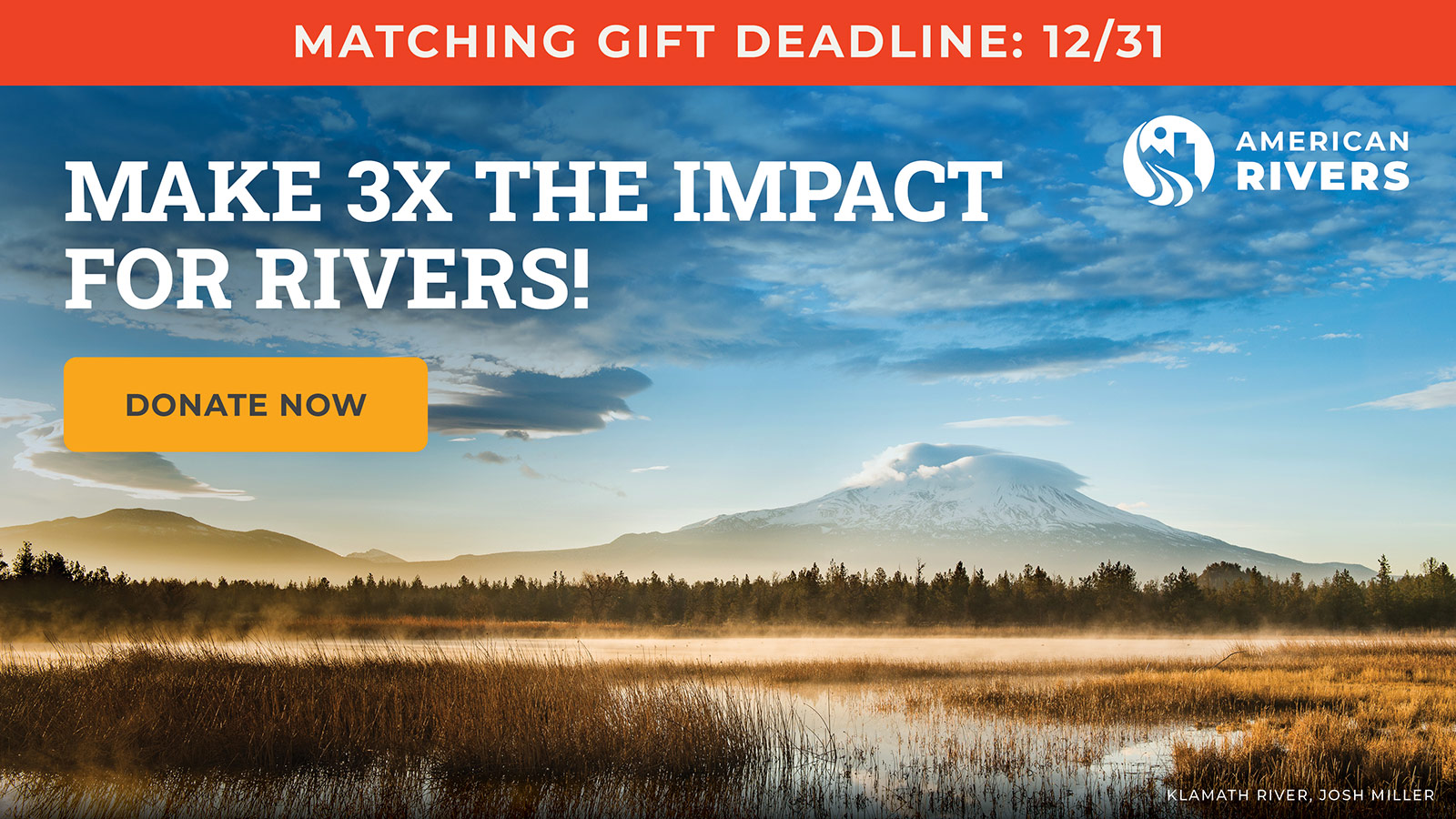Draft Columbia-Snake plan won’t deliver for salmon, communities, economy
Northwest needs new thinking, collaborative solutions
February 25, 2020
Contact: Amy Kober, 503-708-1145
Portland – This Friday, the U.S. Army Corps of Engineers, U.S. Bureau of Reclamation, and Bonneville Power Administration will release a draft environmental impact statement addressing the latest plan for operations of the hydropower dams on the Columbia and Snake rivers. Five plans have failed already, rejected by courts as illegal and inadequate for saving endangered salmon, and the same fate likely awaits this one.
Wendy McDermott with American Rivers released the following statement:
“Salmon-dependent communities across the Pacific Northwest feel like Bill Murray in Groundhog Day, reliving the same day over and over again. Here in the Northwest, we’re looking at yet another Snake River salmon recovery plan that will almost certainly fail and is unlikely to survive legal challenge. We’ve been at this for more than 20 years. With salmon facing extinction, isn’t it time for new solutions?”
“You can’t solve a problem if you are not analyzing the right questions to begin with. This environmental impact statement was never designed to address the complex challenges facing our region. It will not provide a comprehensive solution for our salmon, energy and agriculture needs, nor will it address how the federal government will uphold its obligation to Columbia River treaty tribes. But that’s the conversation that communities that depend on the benefits the Columbia and Snake Rivers are ready to have.”
We need to think bigger and more holistically. The region’s governors are spurring important dialogue about how we might reimagine our relationship with the Columbia and Snake rivers and ensure a future of abundant salmon, clean affordable energy and thriving agriculture. Key members of the Northwest Congressional delegation, who ultimately will need to craft a comprehensive legislative solution, are also supporting constructive conversations. We must keep these conversations going with an eye to inclusive solutions that move everyone forward together.”
“We share common values, and we can work together to address everyone’s needs. That’s why farmers are speaking up for salmon recovery. Fishermen are supporting upgrades to grain transportation. Businesses want investments in clean energy. We must focus on what connects us and commit to meeting the region’s energy, agricultural and conservation challenges together.”


